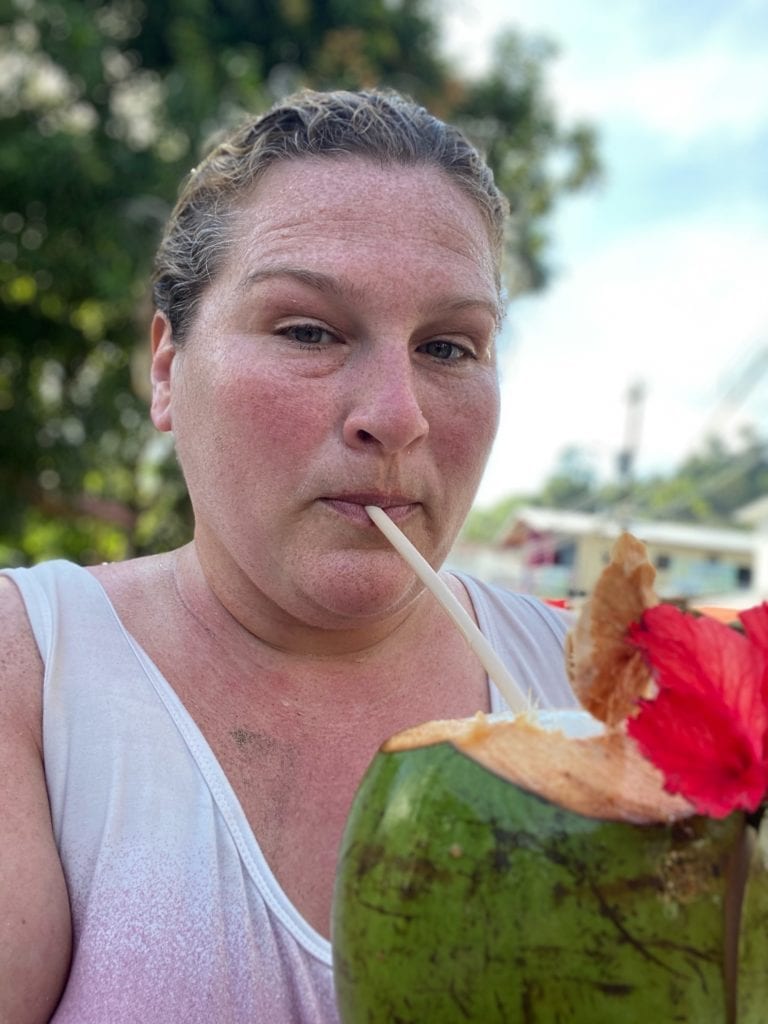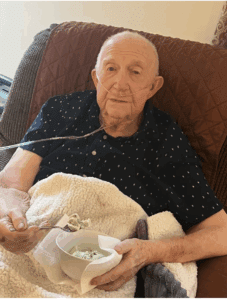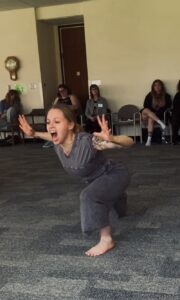My friend Heather and I were recently talking about the marvels of travel and sharing on all of the places we’d like to go. She said, “India is on my ‘bucket list,’ although I really don’t like the term ‘bucket list.’”
“Yes!,” I declared, “Neither do I!”
The phrase never rested well with me, yet it’s only now that I began to explore why. The concept of the “bucket list,” made popular by the 2007 film of the same name starring Morgan Freeman and Jack Nicholson, is a direct reference to the English language idiom “kicking the bucket”—or dying. Someone’s “bucket list” generally references all of the places that they want to see, the experiences they want to have, or the things they want to acquire before they die. And there seems to be many reasons why people may embrace the spirit of a “bucket list,” while pointing out some of the flaws in its logic. For some, the aversion to the term is that we have to bring death into it—why can’t this idea be about embracing life more fully instead of setting some kind of “to do” list that has to be checked off like everything in our performance-driven modern society? Blogger Luke Ball, creator of the “I Lived” project, warns that not only does making “bucket lists” lure us into this quantitative trap of judging our lives by how many things we check off the list, it can create a sense of striving in us that ultimately leads to self-deprecation if we don’t meet our goals. His thoughts resonate with the yogic concept of setting an intention rather than making firm and fast goals. When we set a goal, we may be likely setting ourselves up to fail. As one of my teachers shared with me, intentions are much more reality-friendly. Intention (or resolve) is the best translation of the yogic practice of sankalpa.
As my friend and I chewed a little bit over what alternative construct could be used in place of “the bucket list,” a very powerful word revealed itself to me: manigusto. “Manigusto” is the resolve to enjoy life more; a combination of “manifesto,” a mission statement that comes from the same Latin root where we get both “a ship’s manifest, or list of inventory,” and “gusto,” now an English word with multiple meanings (also the same root as ‘a gust of wind’). In many Romance languages derived from Latin, “gusto” means “pleasure.” Spending time with many Spanish speakers, I’ve come to love phrases like “mucho gusto” (much pleasure, often used when you meet someone) and “con gusto” (with pleasure, often used in the context of ‘you’re welcome’ when someone says ‘thank you.’) And having grown up in a very religious context where pleasure was looked at suspiciously, I am all about embracing a life where, to quote the cliche, pleasure is truly the measure. In the English usage, food writer Jeanine Roth’s use of the word “gusto” as it relates to how we should eat (with gusto) resonated for me in her popular 2011 bestseller Women, Food, and God: An Unexpected Path to Almost Everything. I liked that idea from the moment I read it at the time the book came out, yet in what sometimes feels like a never-ending struggle to embrace the pleasure of this life, I’m just now learning how to do it. And pleasure is about quality of experience, not quantity.
I do believe there is a value to listing resolves or intentions, yet in the spirit of yogic philosophy, I am open to them being molded or changed by the flow of life. And every time we set an intention, according to the work of dance therapy pioneer Ermgherd Bartinieff, we are already rewiring our nervous systems. So my “Manigusto” is a positive statement of intention for how I wish to live my life going forward. A life that embraces pleasure, reality, and a deep commitment to being my truest self. You know, everything that growing up as a person in modern times in the West has taught me not to do!
In stirring with this new word, I want to invite all of you, as an intentional practice, to sit (or move) with the term “manigusto” for a while and then write, or otherwise create you own. You can use mine (which appears at the end of this piece) for inspiration, yet I encourage you to dig deeply and make it genuine for you. Speaking purely for myself, living through the last year and the challenges of it has inspired me greatly to appreciate my life even more. I realize that I write this piece and issue this challenge as a person of means and with a high degree of privilege in most areas of my life, so as this concept unfolds, I am truly open to feedback about whether this is concept is applicable to all. In writing my own manigusto and this piece, I challenged myself to float back in my memory to the time when I suffered the most and did not have a lot in the way of financial resources. And I do believe that the idea of ‘manigusto,’ while I did not have that word at the time, kept me going.
In the Fall of 2000, I hit the worst emotional bottom of my life. And while I’ve shared this general story in several places in my writing (including a 2018 article and in the book Trauma and the 12 Steps: An Inclusive Guide to Recovery) I never offered this specific detail of it: On a chilly November night, I slept on a train station bench in Prague, Czech Republic, after eating a $.30 smazeny syr (fried cheese sandwich… they are the best in Prague) and drinking a European Fanta (much sweeter than the American formula)…and I knew I was going to be okay. I’d flirted with suicide ever since I was nine years old and by the time I reached the autumn of 2000 as a 21-year-old, my desire to put my depressed, defective self out of her misery through drugs, alcohol, or any other injurious means reached a fever pitch. Clearly I needed more mental health help than I’d received through the life raft that was the campus counseling center two years prior, yet still impacted by the super-religious, “pull-yourself-up-by-the-bootstraps” mentality of the family system that created this mess in my mind, I didn’t know where to go for it. In those dark days of November 2000, I was able to tap into the ‘gusto’ for life that I experience backpacking through Europe that summer, exploring not only my primary ancestral homeland of Croatia, but the surrounding countries as well.
“If I could just experience life like that again,” my body-mind complex somehow knew in her wisdom, “I think I will survive.”
There was a moment when I sat in my miserable apartment during my first semester of graduate school, studying history when I really wanted to be out there making it, or at least filming it, when I said, “You can’t just abandon your life.” And I’d already disappointed my family by not going the pre-approved medical school or law school route, so saying that I was on track to eventually study with the greatest living Eastern European history scholar in the U.S. at the time kept them satisfied. Yet when I woke up after a horrible binge the day after Thanksgiving, my heart signaled me as clearly as a bell that if I didn’t move on that inspiration, I would be dead by Christmas. So I did it—got out the little money I had saved, bought the cheapest ticket I could find (to Prague, with the plan of eventually making my way down to Croatia and Bosnia-Hercegovina possibly to work, yet having nothing guaranteed)…and I just left. I told only two people I was going and left notes for the rest, including to the graduate advisor who adored me and was priming me for greatness. I just couldn’t live that lie any more. That initial “walking away” would be the first of many lies I had to face head-on and abandon in order to embrace the new truths I need to embrace about myself.
Today I look at that 21-year-old hugging her backpack on the train station bench in Prague, afraid to spend money on even a hostel for the night, calculating her money to see how long it would last her without getting some kind of menial job on her travels. And I am in awe of her. She was a badass, and I need to stay connected to that spirit as I’ve come dangerously close to flirting with burnout and being crushed under the weight of the comfortable American life ruled by capitalist survival. By moving away, she knew that the guarantee of any help from her family would disappear, and she needed it to be that way in order to truly heal. She wrote in her journal, “I think that literally having to survive on a day-to-day basis with no guarantees is actually what I need so I won’t end my life.”
My Lord, she was wise. She had a “manigusto.”
Sometimes I wonder what happened to her. She did make her way down to her family’s homeland and ended up working there for almost three years—she worked with children and adults impacted by the war and met two very important mentors who would help her to get sober, reasonably well, and on track for accepting the work that she does today.
Truthfully, she is not and has never been altogether lost. Yet I know that on days and during seasons when I struggle, I have a tendency to forget that time in my life and the spirit of that very spunky girl yearning to break free. In so many ways I am more liberated than she was—I’m fully out and proud about my sexuality, I’ve rejected the dogmatism of my family’s religious origins yet remain a deeply spiritual person, and I’ve become more at peace with my body. I depend on no one else to support me. Yet as much as I love my work, I also feel the weight of running a business, caring for others, and dealing with the likes of accountants, lawyers, team members, insurance brokers, regulatory boards, the IRS, other necessary parties to keep my business thriving, not to mention the various tasks of owning and running a house. When I was on the bench in Prague I had only a backpack and was perfectly okay to have left behind everything in the U.S.—what I had in that backpack was all I needed. Some days I look around at all of the stuff in my home-office complex and I wonder, “What happened?”
Oddly enough, I most connect with that young, rebellious, badass Jamie when I travel. There is something about travel that teaches me just how big and wonderful and glorious this world is, and that when I was at the most desperate place in my life, traveling on a shoestring and the unknown is what kept me alive. My resolve, and the reason that I make this “manigusto” right now, is that I never cease to feel her presence in my heart.
My “Manigusto” 2021 Deep dives in the ocean of life with People I love and cherish In this life I’ve been entrusted to Care for the ocean To help save it and to Rescue the people drowning in it Yet what is the sense of accepting This life vocation if I do not Take ample time to Swim in it myself To dance in the waves at sunset And to listen to them as the sun rises Eating food that excites me Climbing mountains and Enjoying the massages afterwards Savoring experiences while Still collecting a few things along the way Making time to read All of the books on my shelf And write the ones that are Locked inside of me Telling stories in all of the mediums Exploring what my heart desires To enjoy in the world And then resting into the journey home Snuggled up with myself, And with the ones I love On the couch, content Talking about everything And nothing at all Enjoying this life to the fullest And never fearing the next.















2 Responses
Great journeys allow for life changing insights, hopefully those we keep on with for a long, long time.
Jamie, thank you for your authenticity. Today as I mindfully walked the beach and felt the grit of the sand between my toes I said a prayer of thanksgiving for the simple things. Your blog has reminded me the importance of such. Enjoy your time – connect with the young wondrous curious Badass Jamie 👍🏾